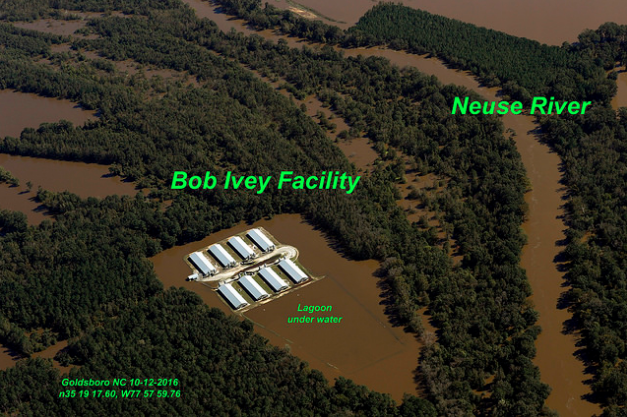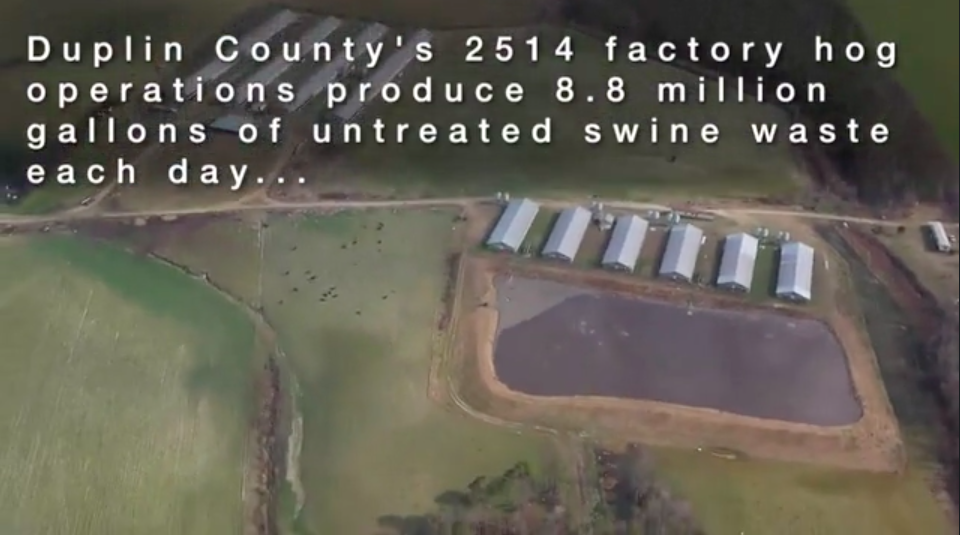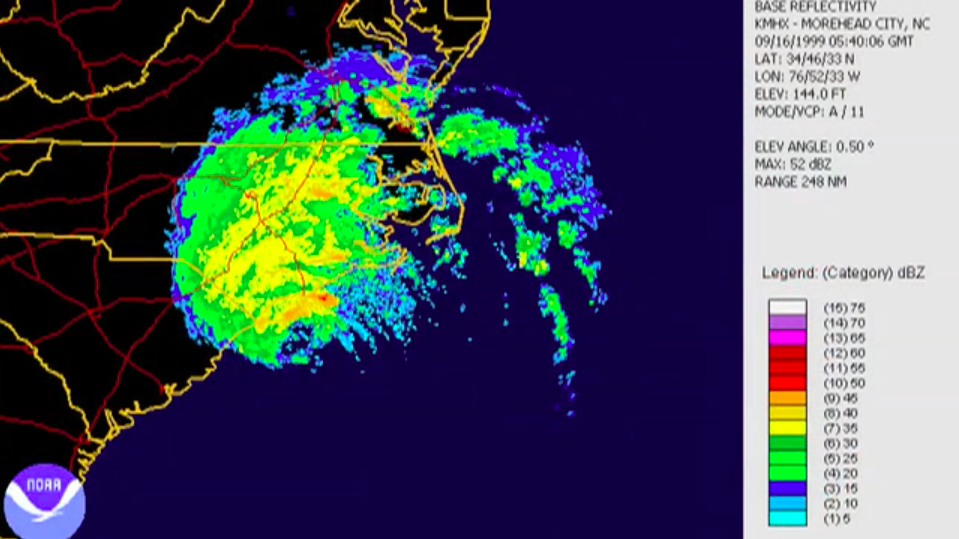Text by Sol Weiner, photos by Sol Weiner and Tom Clement (unless otherwise noted)
Perhaps it seems insensitive, almost crass. With as much life and property lost in a storm like Hurricane Matthew, news outlets—with the pressure to constantly produce material—still run stories not about people washing away, but about pigs. And chickens. And turkeys. Whether the story is about the family pet falling victim to flooding or an entire hog farm, many people rightly ask, what’s the point? Don’t we have bigger fish to fry?

The short answer is yes. We should always be focused on people, especially those who were and always are hit hardest by hurricanes: low-income communities, particularly communities of color, who are far more likely to live in flood-prone and underdeveloped landscapes. That violence, though—of poverty, place, and state inaction—is the same violence poor people and people of color in Eastern North Carolina endure on a daily basis, but in fast forward. After all, 95% of hog CAFOs (concentrated animal feeding operations) in Eastern North Carolina are located in low-income communities of color.
When the news media shares stories about non-human animals in disasters, they may not be getting at the deeper point, but they are onto something. Consider the cesspools (or, as the industry calls them, lagoons) where hog waste on CAFOs is stored before being sprayed onto surrounding fields. Because of the contract system that large livestock corporations maintain, often the only part of the farm that the farmer actually owns is the waste produced by the animals. Therefore farmers aren’t left with many options when it’s about to rain and the cesspool is exceedingly high. Legal or not, they often over-fertilize fields or dump the waste into surrounding streams.

This is when things are running normally. The result is that people nearby get sick from the sprayed waste, and from contaminated ground and surface water. Property values are disproportionately low in areas near hog or poultry operations, and the mental stress of living next to what is essentially a biohazard zone raises blood pressure and the likelihood of depression. But livestock-business-as-usual and the harm it causes poor communities means cheap pork, access to new markets, and political power for the industry. The destruction is part of the business model. Of course, the pigs chose none of this but it’s too late now to ask them if they want to participate in the market or not. The same can be said for any person who isn’t a “winner” in today’s economy.

And then a hurricane hits, like Matthew. Or Floyd in 1999—preceded by 15 inches of rain from Hurricane Dennis—which is estimated to have killed 35 people and hundreds of thousands, if not millions, of pigs, turkeys, and chickens. Thousands of literal tons of untreated waste washed down the Neuse and Cape Fear Rivers, fed by the swamps and slow creeks of the coastal plain. With Matthew, the situation again comes into stark relief before our eyes, perhaps even on cable news; we see dead pigs floating down the river, poultry in drainage ditches, and humans suffering with, for, and because of them. It’s sensational and makes for a good story, but only because we are seeing the slow violence of environmental racism and classism sped up for the TV. Far fewer people pay attention when the system works the way it was designed to.
The fates of pigs, humans, and our shared landscapes are not actually so distinct from one another. The day that we stop seeing footage of animals drowning on farms and washing down streams—which, it appears, will become more frequent as the planet grows increasingly hot—will only come when we stop seeing footage of people who have met the same fate. And for that to happen, it’s time that North Carolina state legislature and the federal government get serious about cleaning up our state’s livestock industries. The only ones who don’t stand to benefit are the ones who are making money now off our disasters, the ones that hit us both fast and slow but wear away at us all the same.
Sources:
http://rachelcarsoncouncil.org/wp-content/uploads/2016/09/pork_and_pollution_fact-sheet_web.pdf
http://www.motherjones.com/environment/2016/10/hurricane-matthew-killed-animals-hog-poop
https://www.ncbi.nlm.nih.gov/pmc/articles/PMC1637983/pdf/envhper00304-0089.pdf


Leave a Reply